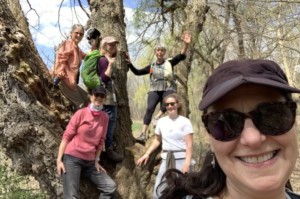 What women entrepreneurs have learned
What women entrepreneurs have learned
Women in Berkshires businesses are making connections, serving our community, and modeling resilience despite pandemic setbacks.
By Jonathan Butler, President & CEO
Posted to the Berkshire Edge on October 18,
Editor’s note: This article was authored in collaboration with 1Berkshire’s Economic Development team.
It goes without saying that the pandemic economy has been chaotic and challenging for workers and employers alike. From massive layoffs to labor shortages, the last 19 months have been anything but easy. For women, the COVID economy has been particularly staggering: between February and April of 2020, women lost 12.1 million jobs, according to the National Women’s Law Center (NWLC). By the release of the Bureau of Labor Statistics’ jobs report in September of last year, only about half of those jobs had returned. In their “A Year of Strength & Loss” report released in March, the NWLC stated that more than 2.3 million women left the workforce between February 2020 and February 2021, resulting in their lowest labor participation rate (57 percent) since 1988.
A Forbes column published earlier this year expressed hope that the post-COVID economic recovery would follow that of the Great Recession of 2008-2009. The post-Great Recession recovery saw businesses owned by women and people of color add jobs (1.8 million), while businesses owned by white males (800,000) and white males and females (1.6) million lost jobs. It’s still much too early to draw conclusions about how the post-COVID recovery will play out, but early signs are encouraging. Data compiled for The Washington Post by LinkedIn found that the share of female entrepreneurs (defined as female members who had changed their title to “founder” during the pandemic) grew at a rate double its pre-pandemic average from March to November of 2020.
Closer to home, women are also well represented in entrepreneurship. The Massachusetts Small Business Development Center Network (MSBDC), hosted by the Isenberg School of Management at the University of Massachusetts Amherst, provides the tools and guidance entrepreneurs need to become successful in today’s challenging economic climate. According to Keith Girouard, Regional Director for the MSBDC’s Berkshire Center, historically the center has seen a relatively even split between men and women using their services. However, over the last two years, since October of 2019, “more women than men have sought our services, with a split being 53 percent women and 47 percent men.”
This is higher than the statewide numbers where, from October 1, 2019 to September 30, 2020, women made up almost 49 percent of clients served statewide (a ten-year high, and nearly a 3 percent increase over the previous year). Girouard notes that most of their female clients are already operating businesses, and are seeking specialized assistance with management, marketing, and financing.
Another initiative offering support for entrepreneurs here in the Berkshires is Entrepreneurship for All (EforAll), which is committed to accelerating economic and social impact through inclusive entrepreneurship. Since it arrived in theBerkshires in 2019, EforAll has served four cohorts of entrepreneurs through its accelerator program, and numerous others through pitch competitions and training sessions. EforAll Berkshire County’s Executive Director, Deborah Gallant, estimates that approximately 70 percent of entrepreneurs participating in accelerator cohorts have been female. Deborah believes that the pandemic may have motivated women to seek entrepreneurial opportunities to have greater control over their schedules. She notes that several of the participants in the current cohort (of which 11 of 14 participants are women) have jobs, but the pandemic caused them to weigh “what they were spending their time doing and what they were being paid for, and they very much wanted the opportunity to make their own choices and hours.” Deborah believes that this is a great time to start a business, and to take advantage of opportunities to get help. “I think there’s this myth everywhere about being super independent and doing it yourself,” she says. “There’s no prize for doing it alone, so why not accept help from others?” Community and collaboration were common refrains among other female entrepreneurs we spoke with as well, and in some cases, critical during the pandemic.

